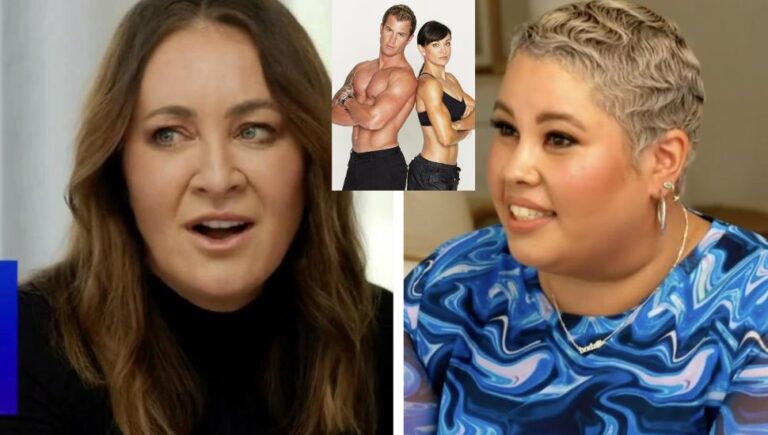Body positivity activist April Helene-Horton has confronted former The Biggest Loser trainer, Michelle Bridges, on the traumatic impact the reality show had on her life. In an intense segment on Wednesday’s episode of The Project, Helene-Horton told Bridges she had been unsure whether she should even appear in the same TV segment as her given the show’s presence in her life.
Why was The Biggest Loser controversial?
The Biggest Loser was a local spin-off of the popular US show, which debuted on screens in 2006, running for 11 seasons. Bridges appeared as one of several tough-talking trainers throughout its run, motivating overweight contestants to intensively diet and exercise in a contest to lose the most weight in the fastest time, all for a big cash prize.
Controversy arose around the show’s negative impact on the contestants’ mental and physical health. The show’s approach to weight loss was described as harsh and emotionally abusive, with many of the contestants developing eating disorders and long-term health problems.
The Biggest Loser and Traumatic Processes: Activist Speaks Out
The Project segment saw Bridges sit down with several body positivity activists to discuss what it means to be healthy. Helene-Horton listed mainstream media, fashion, doctors who don’t want to see fat patients, and social media among the main culprits to blame for the idea that larger bodies are bad.
Bridges then asked if she would put the fitness industry in that same category. “Yeah, I would,” Helene-Horton replied. “And I’ll be really honest and say, I was somewhat nervous coming here today to see you because I would genuinely say that the show The Biggest Loser was one of the most traumatic things that ever happened to me.”
Love Music?
Get your daily dose of metal, rock, indie, pop, and everything else in between.
Why The Biggest Loser Wouldn’t Work Today
Helene-Horton said that, having spoken to Bridges, she soon realized they had some things in common. “You, like me, are somebody who struggled against the idea that you need to be perfect. But the edit [on The Biggest Loser] still made me feel like someone who had the same values as you…would make me feel shame.”
Bridges acknowledged that The Biggest Loser wouldn’t work today and has faced criticism in the past for its controversial approach to weight loss. Bridges finished up with The Biggest Loser in 2015 and courted controversy the following year when she defended the show against criticism in an episode of Australian Story.
Cut the Fat
Body positivity activist April Helene-Horton’s confrontation of Michelle Bridges on The Biggest Loser’s traumatic processes has shed more light on the controversial reality show. The show’s negative impact on contestants’ mental and physical health and its emotionally abusive approach to weight loss has long been a point of contention.
While Bridges acknowledged that the show would not work today, her past defense of the show against criticism leaves many to wonder how the show was allowed to continue for so long. It is important to consider the potential harm of reality shows that promote unrealistic body standards and harmful weight loss practices.
The writer used AI tools to publish part of this article. The Brag Media relies on journalists to fact check & edit all articles regardless of any AI tools used.


































